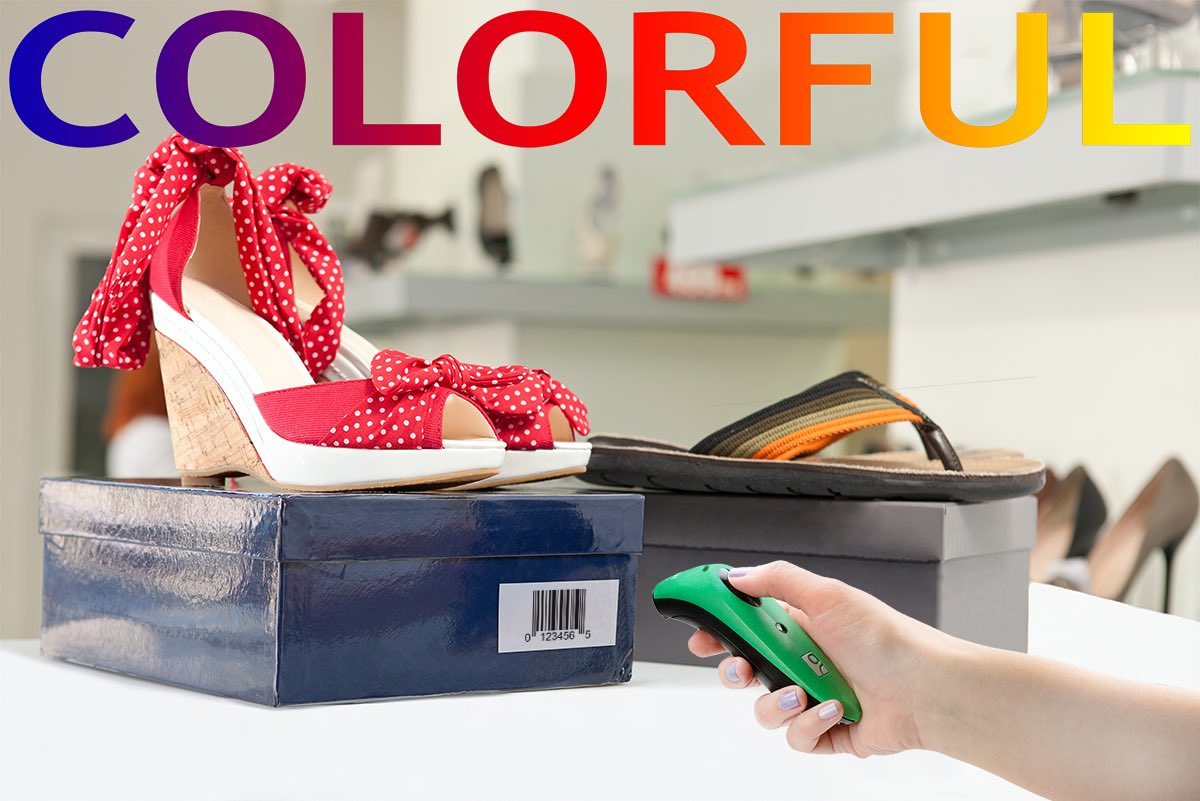Why Barcodes are Used
Why Barcodes are Used 
Using barcodes strictly for scanning barcodes while shopping or for inventory management are a thing of the past. A simple code that has gone from 1D to 2D, scanned on paper and then scanned on screens, has become a pervasive necessity for every single item that we purchase or use. Who knew that from a mere grocery store, our everyday barcodes would evolve so much in the way they’re used and the industries that they are used in.
Shopping/Inventory
When stores’ traffic increased and the demand for products grew, it was imperative to keep accurate inventory well stocked by tracking how much you carried and which items were in demand. When manual counting became too time consuming and too inaccurate, the barcode was born. The first UPC (Universal Product Code) barcode was scanned in 1974. Buying groceries from the local market changed forever from that point on.
Ticketing
Whether an event is big or small, whether you’re traveling, or whether you’re using a discount, tickets are distributed and collected easily with the help of barcodes. When purchasing tickets online, printing or showing an online screen shot of your ticket on a smart phone is all possible thanks to the inclusion of barcodes on those tickets. Mobile ticketing has become a popular and convenient means of saving and using tickets – they’re harder to lose when saved online, save paper, and they are conveniently saved on the mobile device you carry around everywhere you go.
Medical Field
Though most people associate barcodes with merchandise and purchasing, the fact that barcodes provide individuality (code, date, lot, location, etc.) to every single object opens the door to so many more possibilities, including the medical industry. Accurately identifying individuals is crucial when it comes to handling patients and their medications. Medical charts can be lost or misread, but scanning barcodes with patients’ medical information reduces human error by incorporating the use of this technology.
Barcode Gaming
Yes, barcodes can even be used for gaming. With enough imagination, apparently you can turn anything into a game. Most of the games’ concepts revolve around scanning random barcodes to unlock monsters, spells, or weapons for battling.
-Barcode Beasties (Android App) – scan barcodes to release monsters for battling. Holidays, like Halloween, have limited time monsters available for that day.
-Barcode Wars (iTunes) – “Scan barcodes, fight monsters, battle for greatness! The Skeletal Dragon Abassy has released a horde of Monsters into the world.”
-Skannerz UPC Scanner Game – a handheld game/scanner with screen and controller buttons to scan barcodes and release monsters.
These games use smart phone cameras or handheld gaming devices for scanning and playing. Though barcode gaming is not the most popular of games, there is a cult following of gamers who continue to seek new versions when systems become out of date or are no longer applicable with the current technology or OS.
Barcodes Evolve
In a nutshell, barcodes are mostly used for tracking items; they track inventory, deliveries, access and attendance. By tracking products, services are improved all around - happy customers lead to returning customers, which lead to profitable businesses. While alternate scanning uses are derived (i.e. gaming), how much further can barcodes evolve?
From 1 Dimensional to 2 Dimensional, barcodes really haven’t changed that much. The appearance may be parallel lines, square module perimeter patterns, or even plain numbers, yet they still work the same, though one type may carry more information than another.
Some may argue that the next evolution of barcodes is unfolding with RFIDs. Though they’re technically not barcodes, nor do they replace barcodes completely, some businesses are managing to swap barcodes for RFID tags in their inventory usage. RFID’s usage stems from the same principle – possess a unique code to individualize a particular object, animal, or even person. RFIDs could even be considered the invisible cousin of the barcode - the future of scanning. While that remains to be seen, one conclusive fact remains – our future will include more and more coding/tagging of items, animals, and people in our lives, ensuring we know the identification and location of almost everything tangible.
Article by Socket Mobile
About Socket Mobile Founded in 1992, Socket Mobile is a leading innovator of data capture and delivery solutions for enhanced productivity in retail point of sale, field service, transportation, manufacturing and other mobile markets. Socket Mobile’s revenue is primarily driven by the deployment of third party barcode enabled mobile applications that integrate Socket Mobile’s cordless barcode scanners. Socket Mobile has a robust network of thousands of developers registered to use its software developer’s kit to add sophisticated barcode scanning to mobile applications. Socket Mobile is headquartered in Newark, Calif. and can be reached at +1-510- 933-3000 or www.socketmobile.com.
The Bar Code News (www.barcode.com), now in its 8th year, does not sell software, hardware, bar code products or services - we are focused on bar code news, information and resources. Please let vendors know you’ve seen them on this website. Want to reach us? See the links on the Footer menu below.
